- Home
- Daphne Du Maurier
The Apple Tree: a short novel & several long stories Page 11
The Apple Tree: a short novel & several long stories Read online
Page 11
"Thank God they waited for me," he said. "Jill would have fallen at once. One bird alone would have done it."
Furtively, so as not to alarm the children, they whispered together, as she bandaged his hands and the back of his neck.
"They're flying inland," he said, "thousands of them. Rooks, crows, all the bigger birds. I saw them from the 'bus stop. They're making for the towns."
"But what can they do, Nat?"
"They'll attack. Go for everyone out in the streets. Then they'll try the windows, the chimneys."
"Why don't the authorities do something? Why don't they get the army, get machine guns, anything?"
"There's been no time. Nobody's prepared. We'll hear what they have to say on the six o'clock news."
Nat went back into the kitchen, followed by his wife. Johnny was playing quietly on the floor. Only Jill looked anxious.
"I can hear the birds," she said. "Listen, Dad."
Nat listened. Muffled sounds came from the windows, from the door. Wings brushing the surface, sliding, scraping, seeking a way of entry. The sound of many bodies, pressed together, shuffling on the sills. Now and again came a thud, a crash, as some bird dived and fell. "Some of them will kill themselves that way," he thought, "but not enough. Never enough."
"All right," he said aloud, "I've got boards over the windows, Jill. The birds can't get in."
He went and examined all the windows. His work had been thorough. Every gap was closed. He would make extra certain, however. He found wedges, pieces of old tin, strips of wood and metal, and fastened them at the sides to reinforce the boards. His hammering helped to deafen the sound of the birds, the shuffling, the tapping, and more ominous — he did not want his wife or the children to hear it — the splinter of cracked glass.
"Turn on the wireless," he said, "let's have the wireless."
This would drown the sound also. He went upstairs to the bedrooms and reinforced the windows there. Now he could hear the birds on the roof, the scraping of claws, a sliding, jostling sound.
He decided they must sleep in the kitchen, keep up the fire, bring down the mattresses and lay them out on the floor. He was afraid of the bedroom chimneys. The boards he had placed at the chimney bases might give way. In the kitchen they would be safe, because of the fire. He would have to make a joke of it. Pretend to the children they were playing at camp. If the worst happened, and the birds forced an entry down the bedroom chimneys, it would be hours, days perhaps, before they could break down the doors. The birds would be imprisoned in the bedrooms. They could do no harm there. Crowded together, they would stifle and die.
He began to bring the mattresses downstairs. At sight of them his wife's eyes widened in apprehension. She thought the birds had already broken in upstairs.
"All right," he said cheerfully, "we'll all sleep together in the kitchen tonight. More cosy here by the fire. Then we shan't be worried by those silly old birds tapping at the windows."
He made the children help him rearrange the furniture, and he took the precaution of moving the dresser, with his wife's help, across the window. It fitted well. It was an added safeguard. The mattresses could now be lain, one beside the other, against the wall where the dresser had stood.
"We're safe enough now," he thought, "we're snug and tight, like an air-raid shelter. We can hold out. It's just the food that worries me. Food, and coal for the fire. We've enough for two or three days, not more. By that time…"
No use thinking ahead as far as that. And they'd be giving directions on the wireless. People would be told what to do. And now, in the midst of many problems, he realised that it was dance music only coming over the air. Not Children's Hour, as it should have been. He glanced at the dial. Yes, they were on the Home Service all right. Dance records. He switched to the Light programme. He knew the reason. The usual programmes had been abandoned. This only happened at exceptional times. Elections, and such. He tried to remember if it had happened in the war, during the heavy raids on London. But of course. The B.B.C. was not stationed in London during the war. The programmes were broadcast from other, temporary quarters. "We're better off here," he thought, "we're better off here in the kitchen, with the windows and the doors boarded, than they are up in the towns. Thank God we're not in the towns."
At six o'clock the records ceased. The time signal was given. No matter if it scared the children, he must hear the news. There was a pause after the pips. Then the announcer spoke. His voice was solemn, grave. Quite different from midday.
"This is London," he said. "A National Emergency was proclaimed at four o'clock this afternoon. Measures are being taken to safeguard the lives and property of the population, but it must be understood that these are not easy to effect immediately, owing to the unforeseen and unparalleled nature of the present crisis. Every householder must take precautions to his own building, and where several people live together, as in flats and apartments, they must unite to do the utmost they can to prevent entry. It is absolutely imperative that every individual stays indoors tonight, and that no one at all remains on the streets, or roads, or anywhere without doors. The birds, in vast numbers, are attacking anyone on sight, and have already begun an assault upon buildings; but these, with due care, should be impenetrable. The population is asked to remain calm, and not to panic. Owing to the exceptional nature of the emergency, there will be no further transmission from any broadcasting station until seven a.m. tomorrow."
They played the National Anthem. Nothing more happened. Nat switched off the set. He looked at his wife. She stared back at him.
"What's it mean?" said Jill. "What did the news say?"
"There won't be any more programmes tonight," said Nat. "There's been a breakdown at the B.B.C."
"Is it the birds?" asked Jill. "Have the birds done it?"
"No," said Nat, "it's just that everyone's very busy, and then of course they have to get rid of the birds, messing everything up, in the towns. Well, we can manage without the wireless for one evening."
"I wish we had a gramophone," said Jill, "that would be better than nothing."
She had her face turned to the dresser, backed against the windows. Try as they did to ignore it, they were all aware of the shuffling, the stabbing, the persistent beating and sweeping of wings.
"We'll have supper early," suggested Nat, "something for a treat. Ask Mammy. Toasted cheese, eh? Something we all like?"
He winked and nodded at his wife. He wanted the look of dread, of apprehension, to go from Jill's face.
He helped with the supper, whistling, singing, making as much clatter as he could, and it seemed to him that the shuffling and the tapping were not so intense as they had been at first. Presently he went up to the bedrooms and listened, and he no longer heard the jostling for place upon the roof.
"They've got reasoning powers," he thought, "they know it's hard to break in here. They'll try elsewhere. They won't waste their time with us."
Supper passed without incident, and then, when they were clearing away, they heard a new sound, droning, familiar, a sound they all knew and understood.
His wife looked up at him, her face alight. "It's 'planes," she said, "they're sending out 'planes after the birds. That's what I said they ought to do, all along. That will get them. Isn't that gun-fire? Can't you hear guns?"
It might be gun-fire, out at sea. Nat could not tell. Big naval guns might have an effect upon the gulls out at sea, but the gulls were inland now. The guns couldn't shell the shore, because of the population.
"It's good, isn't it," said his wife, "to hear the 'planes?"
And Jill, catching her enthusiasm, jumped up and down with Johnny. "The 'planes will get the birds. The 'planes will shoot them."
Just then they heard a crash about two miles distant, followed by a second, then a third. The droning became more distant, passed away out to sea.
"What was that?" asked his wife. "Were they dropping bombs on the birds?"
"I don't know," answered Nat, "I don't think so." He
did not want to tell her that the sound they had heard was the crashing of aircraft. It was, he had no doubt, a venture on the part of the authorities to send out reconnaissance forces, but they might have known the venture was suicidal. What could aircraft do against birds that flung themselves to death against propeller and fuselage, but hurtle to the ground themselves? This was being tried now, he supposed, over the whole country. And at a cost. Someone high up had lost his head.
"Where have the 'planes gone, Dad?" asked Jill.
"Back to base," he said. "Come on, now, time to tuck down for bed."
It kept his wife occupied, undressing the children before the fire, seeing to the bedding, one thing and another, while he went round the cottage again, making sure that nothing had worked loose. There was no further drone of aircraft, and the naval guns had ceased. "Waste of life and effort," Nat said to himself "We can't destroy enough of them that way. Cost too heavy. There's always gas. Maybe they'll try spraying with gas, mustard gas. We'll be warned first, of course, if they do. There's one thing, the best brains of the country will be on to it tonight."
Somehow the thought reassured him. He had a picture of scientists, naturalists, technicians, and all those chaps they called the back-room boys, summoned to a council; they'd be working on the problem now. This was not a job for the government, for the chiefs-of-staff — they would merely carry out the orders of the scientists.
"They'll have to be ruth1ess," he thought. "Where the trouble's worst they'll have to risk more lives, if they use gas. All the livestock, too, and the soil — all contaminated. As long as everyone doesn't panic. That's the trouble. People panicking, losing their heads. The B.B.C. was right to warn us of that."
Upstairs in the bedrooms all was quiet. No further scraping and stabbing at the windows. A lull in battle. Forces regrouping. Wasn't that what they called it, in the old war-time bulletins? The wind hadn't dropped, though. He could still hear it, roaring in the chimneys. And the sea breaking down on the shore. Then he remembered the tide. The tide would be on the turn. Maybe the lull in battle was because of the tide. There was some law the birds obeyed, and it was all to do with the east wind and the tide.
He glanced at his watch. Nearly eight o'clock. It must have gone high water an hour ago. That explained the lull: the birds attacked with the flood tide. It might not work that way inland, up country, but it seemed as if it was so this way on the coast. He reckoned the time limit in his head. They had six hours to go, without attack. When the tide turned again, around one-twenty in the morning, the birds would come back…
There were two things he could do. The first to rest, with his wife and the children, and all of them snatch what sleep they could, until the small hours. The second to go out, see how they were faring at the farm, see if the telephone was still working there, so that they might get news from the exchange.
He called softly to his wife, who had just settled the children. She came half—way up the stairs and he whispered to her.
"You're not to go," she said at once, "you're not to go and leave me alone with the children. I can't stand it."
Her voice rose hysterically. He hushed her, calmed her. "All right," he said, "all right. I'll wait till morning. And we'll get the wireless bulletin then too, at seven. But in the morning, when the tide ebbs again, I'll try for the farm, and they may let us have bread and potatoes, and milk too."
His mind was busy again, planning against emergency. They would not have milked, of course, this evening. The cows would be standing by the gate, waiting in the yard, with the household inside, battened behind boards, as they were here at the cottage. That is, if they had time to take precautions. He thought of the farmer, Trigg, smiling at him from the car. There would have been no shooting party, not tonight.
The children were asleep. His wife, still clothed, was sitting on her mattress. She watched him, her eyes nervous.
"What are you going to do?" she whispered.
He shook his head for silence. Softly, stealthily, he opened the back door and looked outside.
It was pitch dark. The wind was blowing harder than ever, coming in steady gusts, icy, from the sea. He kicked at the step outside the door. It was heaped with birds. There were dead birds everywhere. Under the windows, against the walls. These were the suicides, the divers, the ones with broken necks. Wherever he looked he saw dead birds. No trace of the living. The living had flown seaward with the turn of the tide. The gulls would be riding the seas now, as they had done in the fore-noon.
In the far distance, on the hill where the tractor had been two days before, something was burning. One of the aircraft that had crashed; the fire, fanned by the wind, had set light to a stack.
He looked at the bodies of the birds, and he had a notion that if he heaped them, one upon the other, on the window sills they would make added protection for the next attack. Not much, perhaps, but something. The bodies would have to be clawed at, pecked, and dragged aside, before the living birds gained purchase on the sills and attacked the panes. He set to work in the darkness. It was queer; he hated touching them. The bodies were still warm and bloody. The blood matted their feathers. He felt his stomach turn, but he went on with his work. He noticed, grimly, that every window-pane was shattered. Only the boards had kept the birds from breaking in. He stuffed the cracked panes with the bleeding bodies of the birds.
When he had finished he went back into the cottage. He barricaded the kitchen door, made it doubly secure. He took off his bandages, sticky with the birds' blood, not with his own cuts, and put on fresh plaster.
His wife had made him cocoa and he drank it thirstily. He was very tired.
"All right," he said, smiling, "don't worry. We'll get through."
He lay down on his mattress and closed his eyes. He slept at once. He dreamt uneasily, because through his dreams there ran a thread of something forgotten. Some piece of work, neglected, that he should have done. Some precaution that he had known well but had not taken, and he could not put a name to it in his dreams. It was connected in some way with the burning aircraft and the stack upon the hill. He went on sleeping, though; he did not awake. It was his wife shaking his shoulder that awoke him finally.
"They've begun," she sobbed, "they've started this last hour, I can't listen to it any longer, alone. There's something smelling bad too, something burning."
Then he remembered. He had forgotten to make up the fire. It was smouldering, nearly out. He got up swiftly and lit the lamp. The hammering had started at the windows and the doors, but it was not that he minded now. It was the smell of singed feathers. The smell filled the kitchen. He knew at once what it was. The birds were coming down the chimney, squeezing their way down to the kitchen range.
He got sticks and paper and put them on the embers, then reached for the can of paraffin.
"Stand back," he shouted to his wife, "we've got to risk this."
He threw the paraffin on to the fire. The flame roared up the pipe, and down upon the fire fell the scorched, blackened bodies of the birds.
The children woke, crying. "What is it?" said jill. "What's happened?"
Nat had no time to answer. He was raking the bodies from the chimney, clawing them out on to the floor. The flames still roared, and the danger of the chimney catching fire was one he had to take. The flames would send away the living birds from the chimney top. The lower joint was the difficulty, though. This was choked with the smouldering helpless bodies of the birds caught by fire. He scarcely heeded the attack on the windows and the door: let them beat their wings, break their beaks, lose their lives, in the attempt to force an entry into his home. They would not break in. He thanked God he had one of the old cottages, with small windows, stout walls. Not like the new council houses. Heaven help them up the lane, in the new council houses.
"Stop crying," he called to the children. "There's nothing to be afraid of, stop crying."
He went on raking at the burning, smouldering bodies as they fell into the fire.
/>
"This'll fetch them," he said to himself, "the draught and the flames together. We're all right, as long as the chimney doesn't catch. I ought to be shot for this. It's all my fault. Last thing I should have made up the fire. I knew there was something."
Amid the scratching and tearing at the window boards came the sudden homely striking of the kitchen clock. Three a.m. A little more than four hours yet to go. He could not be sure of the exact time of high water. He reckoned it would not turn much before half-past seven, twenty to eight.
"Light up the primus," he said to his wife. "Make us some tea, and the kids some cocoa. No use sitting around doing nothing."
That was the line. Keep her busy, and the children too. Move about, eat, drink; always best to be on the go.
He waited by the range. The flames were dying. But no more blackened bodies fell from the chimney. He thrust his poker up as far as it could go and found nothing. It was clear. The chimney was clear. He wiped the sweat from his forehead.
"Come on now,]ill," he said, "bring me some more sticks. We'll have a good fire going directly." She wouldn't come near him, though. She was staring at the heaped singed bodies of the birds.
"Never mind them," he said, "we'll put those in the passage when I've got the fire steady."
The danger of the chimney was over. It could not happen again, not if the fire was kept burning day and night.
"I'll have to get more fuel from the farm tomorrow," he thought. "This will never last. I'1l manage, though. I can do all that with the ebb tide. It can be worked, fetching what we need, when the tide's turned. We've just got to adapt ourselves, that's all."
They drank tea and cocoa and ate slices of bread and Bovril. Only half a loaf left, Nat noticed. Never mind though, they'd get by.
"Stop it," said young Johnny, pointing to the windows with his spoon, "stop it, you old birds."
"That's right," said Nat, smiling, "we don't want the old beggars, do we? Had enough of 'em."
They began to cheer when they heard the thud of the suicide birds.
"There's another, Dad," cried Jill, "he's done for."

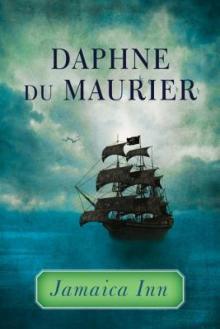 Jamaica Inn
Jamaica Inn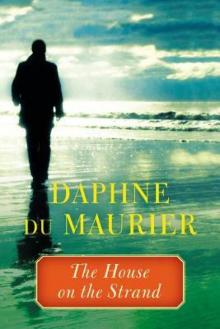 The House on the Strand
The House on the Strand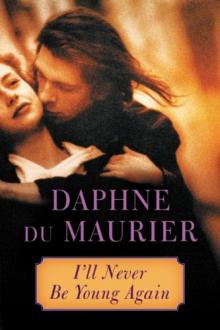 I'll Never Be Young Again
I'll Never Be Young Again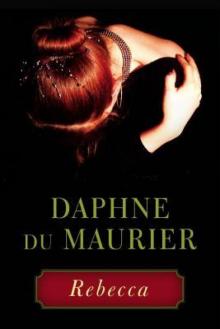 Rebecca
Rebecca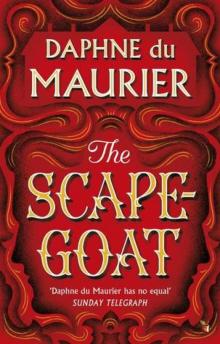 The Scapegoat
The Scapegoat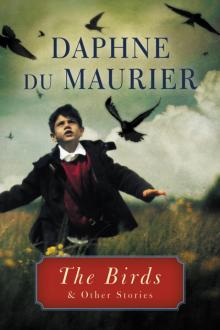 The Birds and Other Stories
The Birds and Other Stories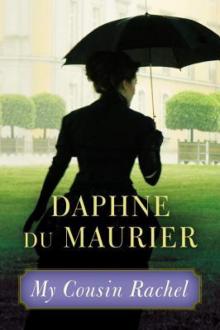 My Cousin Rachel
My Cousin Rachel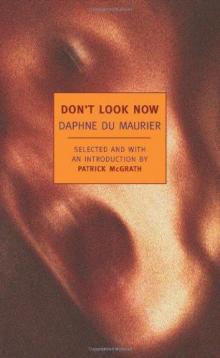 Don't Look Now
Don't Look Now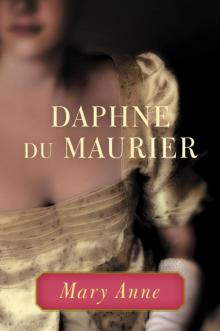 Mary Anne
Mary Anne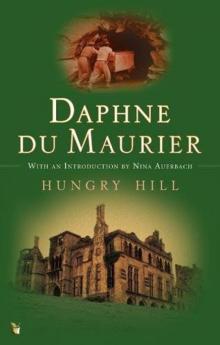 Hungry Hill
Hungry Hill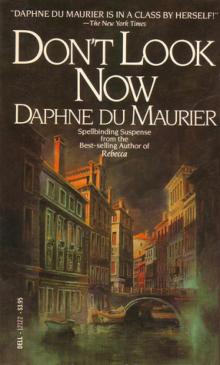 Don't Look Now and Other Stories
Don't Look Now and Other Stories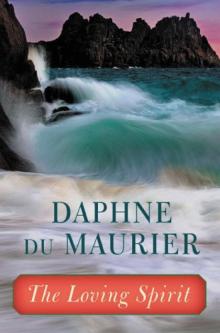 The Loving Spirit
The Loving Spirit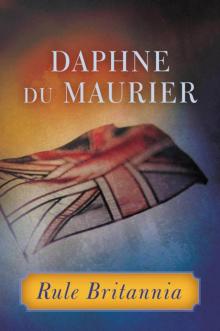 Rule Britannia
Rule Britannia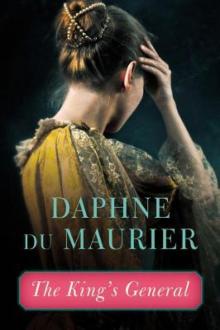 The King's General
The King's General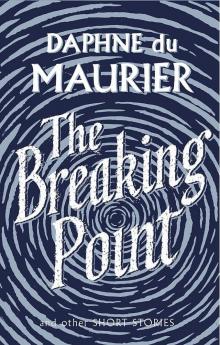 The Breaking Point: Short Stories
The Breaking Point: Short Stories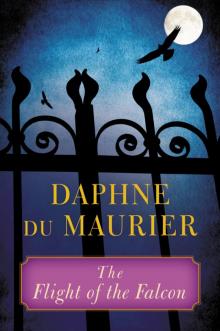 The Flight of the Falcon
The Flight of the Falcon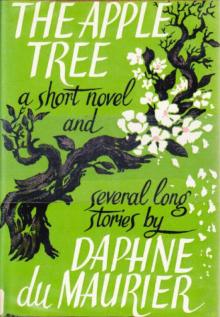 The Apple Tree: a short novel & several long stories
The Apple Tree: a short novel & several long stories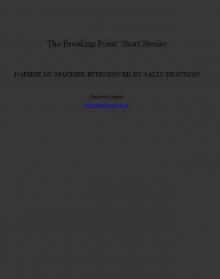 The Breaking Point
The Breaking Point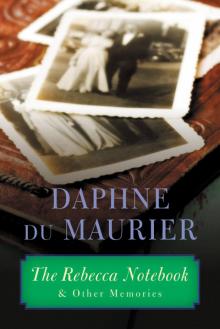 The Rebecca Notebook
The Rebecca Notebook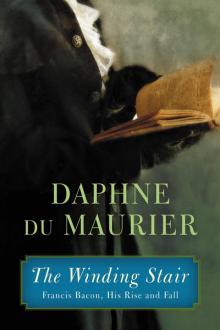 The Winding Stair: Francis Bacon, His Rise and Fall
The Winding Stair: Francis Bacon, His Rise and Fall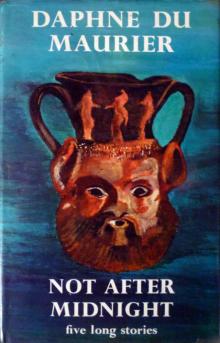 Not After Midnight & Other Stories
Not After Midnight & Other Stories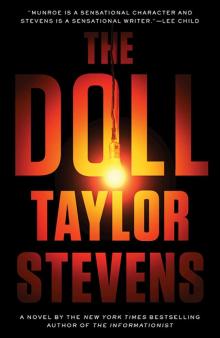 The Doll
The Doll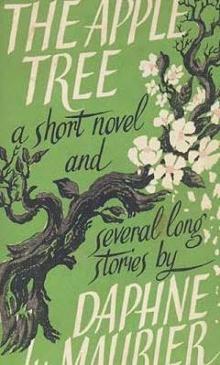 The Apple Tree
The Apple Tree